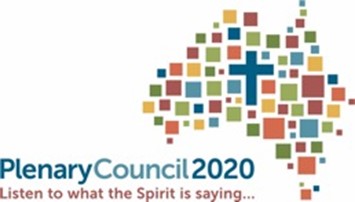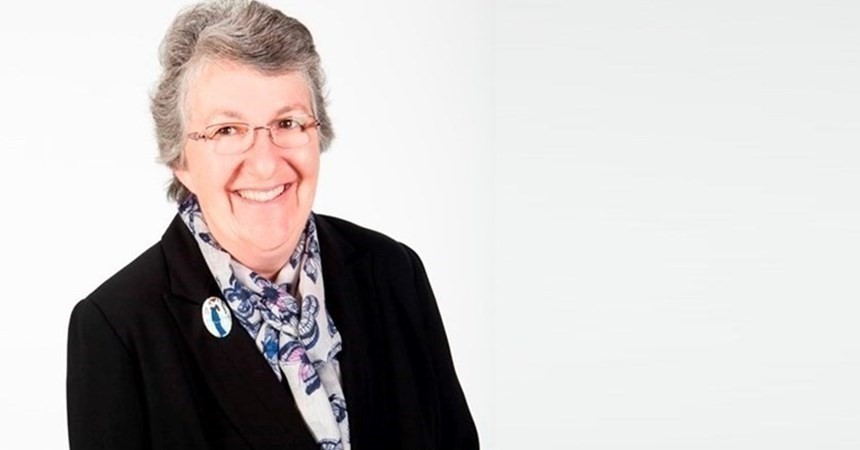NAIDOC stands for National Aborigines and Islanders Day Observance Committee. Its origins can be traced back to the emergence of Aboriginal groups in the 1920’s, when they sought to increase awareness in the wider community of the status and treatment of Aboriginal and Torres Strait Islander Australians.
Each year focuses on an important issue. This year the focus is ‘Voice. Treaty. Truth. – Let us work together for a shared future.’
The 2017 ‘Uluru Statement From the Heart’ is an invitation for us all to walk with Indigenous Australians in ‘a movement of the Australian people for a better future.’ Voice. Treaty. Truth. are the three key elements to the reforms set out in the Uluru Statement from the Heart. These reforms represent the unified position of First Nation Australians.
All Australians are invited to walk in a movement for a better future, through raising a greater national awareness of the three key elements to the reforms set out in the Uluru Statement.
 On this Sunday night of writing this message, I am proud of the service held at our Cathedral on Sunday, 7 July, to mark the start of NAIDOC Week. There were a good number of Aboriginal and Torres Strait Islander people there, along with a diversity of Christians, as well as representatives from the Jewish and Muslim communities and a Federal member of parliament. We began by mingling in the garden at Cathedral House, before being summoned by the didgeridoo, to be cleansed by the smoke of the fire as we entered the Cathedral. The service captured beautifully the depth of respect of all present, as we broke open the Uluru Statement, listened with care to the story of an Aboriginal woman, and then our Christian scriptures by recalling the story of Lazarus, and our mandate to work towards unbinding people and setting them free. Symbolically each person took a bandage with the words Voice Treaty Truth, from the Aboriginal cross at the end of the service.
On this Sunday night of writing this message, I am proud of the service held at our Cathedral on Sunday, 7 July, to mark the start of NAIDOC Week. There were a good number of Aboriginal and Torres Strait Islander people there, along with a diversity of Christians, as well as representatives from the Jewish and Muslim communities and a Federal member of parliament. We began by mingling in the garden at Cathedral House, before being summoned by the didgeridoo, to be cleansed by the smoke of the fire as we entered the Cathedral. The service captured beautifully the depth of respect of all present, as we broke open the Uluru Statement, listened with care to the story of an Aboriginal woman, and then our Christian scriptures by recalling the story of Lazarus, and our mandate to work towards unbinding people and setting them free. Symbolically each person took a bandage with the words Voice Treaty Truth, from the Aboriginal cross at the end of the service.
I think the Plenary Council theme for this week, aligns perfectly with the invitation of NAIDOC week.
How is God calling us to be a Christ-centred Church that is humble, healing and merciful?
In Australia, there is still a big divide between Aboriginal and Torres Strait Islander Peoples and other Australians. I believe we, the Church need to take a leading role in building reconciliation, by adopting positive gestures that enhance and challenge this overdue reconciliation. Our gathering on Sunday and our presence at the NAIDOC Week celebrations at Foreshore Park are such gestures of seeking to understand and support.
The following scripture quote forms part of the paper, which breaks open the fourth Plenary Council theme:
By the tender mercy of our God, the dawn from on high will break upon us, to give light to those who sit in darkness and in the shadow of death, to guide our feet into the way of peace. (Luke 1:78-79)
The National Theme for Discernment - How is God calling us to be a Christ-centred Church that is humble, healing and merciful? - is inspired by the voices of the People of God who expressed a deep and faith-filled trust in God, and a need for lament and healing within the Church, acknowledging the sexual abuse crisis as a turning point for the Church in Australia. It identified the need for relationship and reconciliation among many within the Catholic community, and with the wider Australian society, particularly with Australia’s First Peoples and with all of creation. A desire was expressed for stronger prayer and sacramental life and more effective outreach to those who seek healing, as a renewed openness to, and sign of, God’s mercy.
People spoke about a number of different topics in Phase 1: Listening & Dialogue. Below are some of the topics that informed this particular theme, which was created through a combination of analysis, discernment and prayer
- Allow contraception, birth control

- Baby Boomer generation to listen to young Catholics
- Be a witness in society
- Better communication of what the Church does
- Better homilies
- Better implementation of Royal Commission recommendations
- Better training and support for youth leaders
- Call to repentance for clergy sexual abuse
- Care for neighbour
- Care for the environment
- Care for the family
- Defend right-to-life issues
- End clericalism
- End discrimination of LGBTQ
- Establish more youth programs
- Fight for human rights issues
- Focus on the new evangelisation
- Greater access to Mass and Reconciliation
- Greater concern for victims and survivors
- Greater connection with and inclusion of Indigenous Australians
- Greater emphasis on prayer and sacraments
- Greater focus on Jesus Christ

- Greater focus on the Word of God
- Greater leadership from bishops
- Greater leadership from priests
- Greater recognition of Eastern Catholic Churches
- Greater trust, faith and hope in God
- Heal and move beyond the clergy sexual abuse scandal
- Healing liturgies and public signs or acts of reparation for clergy sexual abuse
- Inclusion of the divorced and remarried
- Listen to one another more
- Mass to be appealing to youth and children
- More transparency and accountability regarding clergy sexual abuse
- More welcoming parishes
- New translation of the Mass (inclusive language)
- Outreach to all the baptised
- Outreach to the wider community
- Outreach to youth
- Reduce margins between rich and poor
- Restore the Third Rite of Reconciliation
- Special care of rural parishes
- Stronger parish communities
- Transparency in governance and decision-making
Youth to be involved more in Church community
In preparing this message, attending the NAIDOC Week Service and then celebrating Mass, I sensed the potential for Australia, the Great South Land of the Holy Spirit, to be God’s paradise, as God wishes for all humanity. During Mass, I was struck by such potential while listening to the readings. The first reading from Isaiah (66:10-14) describes with great beauty and joy:
Now toward her I send flowing
peace, like a river,
and like a stream in spate
the glory of the nations.
This reading then speaks of comfort and rejoicing. It is such a wonderful image of what is possible.
In the second reading from Paul to the Galatians (6:14-18), the following words were read:
What matters is for him to become an altogether new creature. Peace and mercy to all who follow this rule, who form the Israel of God.
 And then, in the Gospel reading from Luke (10:1-12, 17-20) in which Jesus sends out the appointed seventy-two. They are sent as missionary disciples to bring peace, share food, cure the sick and to say, “The Kingdom of God is very near to you.”
And then, in the Gospel reading from Luke (10:1-12, 17-20) in which Jesus sends out the appointed seventy-two. They are sent as missionary disciples to bring peace, share food, cure the sick and to say, “The Kingdom of God is very near to you.”
The overarching theme for me is one of peace, and so I will finish my message with the final sending statements from Church leaders at the NAIDOC Week Service. It was after these blessings that those who attended took a bandage from the cross as a reminder of our call to participate in unbinding each other through listening, accompaniment, justice, mercy, love and compassion for ‘Voice, Treaty, Truth’.
Baha’i: Go in Unity, Love and Peace.
Anglican: Go and be a light for all the world to see.
Hebrew: May the tabernacle of peace be spread upon all the dwellers of the earth.
Muslim: Peace be upon everyone here on earth.
Bishop Bill: Go and live the Good News.
We can only become what we imagine. I hope you can imagine an Australia where all live in peace and harmony.

